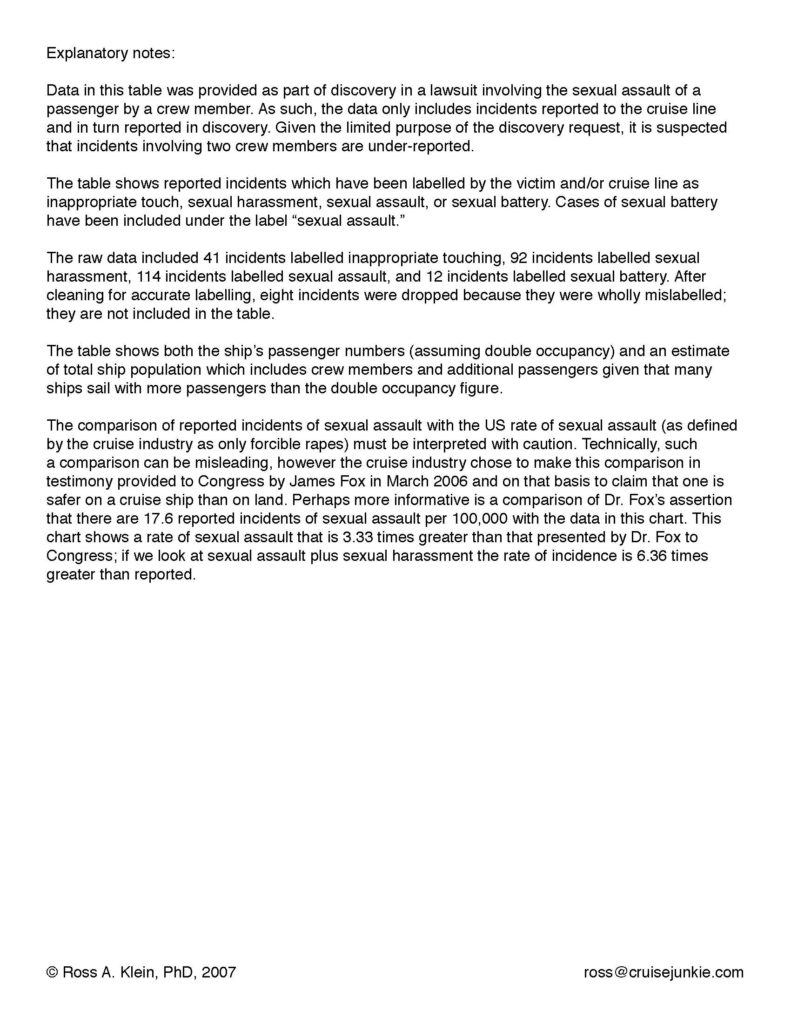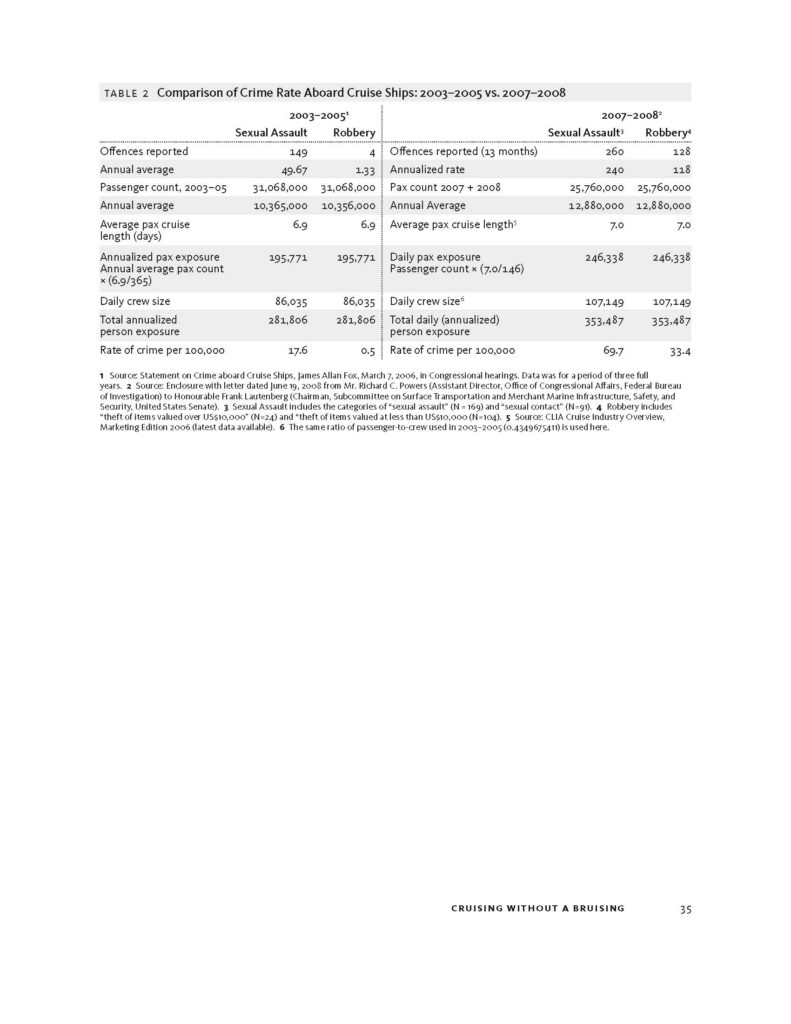Click images below to view larger image
Other Useful Articles


Establishing Legal Liability: Key Theories in Cruise Ship Sexual Assault Cases
Common legal theories our Florida cruise ship rape attorneys use to establish legal liability include:
Negligent Hiring and Negligent Training of Ship Crew
Our Florida cruise ship rape attorneys often establish liability through claims of negligent hiring and training. Cruise lines have a responsibility to thoroughly vet their employees, ensuring that crew members and security personnel are qualified and trustworthy. When a cruise line fails to conduct adequate background checks or provides insufficient training on handling sensitive situations, they can be held liable for any resulting harm to passengers.
Failing to Conduct Routine Sex Offenders Background Checks
Cruise lines are obligated to ensure the safety of their passengers by conducting thorough background checks on all employees, particularly those in positions of authority or proximity to guests. When cruise lines neglect to perform these essential checks, they may inadvertently allow individuals with a history of sexual offenses to work on board, increasing the risk of assault. Our attorneys utilize this legal theory to hold cruise lines accountable for their failure to protect passengers from known dangers.
Failing to Maintain or Implement a Ship Security Plan
A comprehensive security plan is vital for ensuring passenger safety aboard cruise ships. When cruise lines fail to implement or maintain effective security measures, they leave passengers vulnerable to criminal acts, including sexual assault. Our legal team investigates whether the cruise line had a security plan in place and if it was adequately executed, seeking justice for victims harmed due to these oversights.
Negligent Supervision During Youth Programming Activities
Cruise lines often provide youth programming to entertain younger passengers while their parents relax, but they must also ensure that these activities are supervised appropriately. Negligent supervision can lead to dangerous situations, exposing children to potential predators. Our attorneys advocate for victims who have lived a nightmare by demonstrating that the cruise line failed to provide adequate oversight, which directly contributed to the harm endured during these activities.
Failing to Patrol or Monitor High Traffic Areas
High traffic and common areas on cruise ships, such as lounges, pools, restrooms, and hallways, should be regularly monitored to deter criminal activity. When cruise lines fail to implement adequate patrols or surveillance in these areas, they effectively create opportunities for assaults to occur. Our legal team uses this failure in court, arguing that the cruise line’s negligence directly contributed to the victim’s experience.
Negligently Failing to Monitor Passenger Corridors
Passenger corridors are often less monitored than public areas, making them potential hotspots for criminal activity. Cruise lines have a duty to ensure these areas are adequately supervised to prevent assaults. Our attorneys use this legal theory to argue that the cruise line’s negligence in monitoring these corridors allowed for the attack to occur, establishing a direct link between their lack of oversight and the victim’s suffering.
Failure to Staff or Deploy a Sufficient Number of Security Personnel
Adequate security staffing is essential for maintaining a safe environment on cruise ships. When cruise lines fail to deploy enough security personnel, they increase the risk of criminal acts occurring without intervention. Our legal team holds cruise lines accountable for insufficient security measures, demonstrating that their lack of staffing directly contributed to the victim’s vulnerability.
Failing to Provide Adequate Crime Deterrence
Effective crime deterrence strategies are crucial for passenger safety on cruise ships. This includes visible security presence, surveillance cameras, and clear protocols for reporting incidents. When cruise lines neglect to implement these deterrents, they fail to protect their passengers adequately. Our attorneys argue that this negligence creates an environment conducive to criminal behavior, which can lead to tragic outcomes for victims.
Allowing the Consumption or Sale of Alcohol to Minors
Cruise lines have a legal and ethical obligation to prevent the consumption and sale of alcohol to minors. When they fail to enforce these laws, they not only expose young passengers to potential harm but also create situations where intoxication can lead to increased vulnerability to assault. Our legal team pursues claims against cruise lines that disregard these responsibilities, emphasizing the direct link between their negligence and the victim’s experience.
Rape, Voyeurism, and Sexual Assault by Crew Members
Incidents of rape, voyeurism, and sexual assault by crew members represent a severe breach of trust and safety aboard cruise ships. When crew members exploit their positions to harm passengers, cruise lines can be held liable for failing to prevent such incidents. Our attorneys work diligently to hold these companies accountable, ensuring that victims receive the justice and compensation they deserve for the trauma they have endured.










